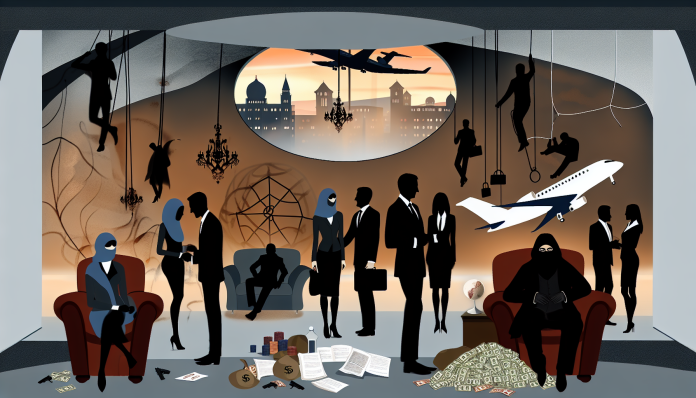The Dark Side of Wall Street: The Scandal of the 1980s
Introduction
In the booming financial world of the 1980s, when Wall Street was synonymous with power, prestige, and a glitzy, glamorous lifestyle, a scandal involving a prominent figure would surprise even the most seasoned investment bankers. That person was Ivan Boesky, an American stock trader whose insider trading actions led to his infamous downfall. In an era characterized by rampant excess, Boesky’s scandal became a turning point that not only exposed corruption in the stock market but also opened floodgates to discussions about morality in business. The period saw an unrestrained ethos where “greed is good,” a mantra popularized by Oliver Stone’s film Wall Street.
The Scandal
Boesky, once a central figure at the intersection of finance and socializing, became known for his lavish lifestyle and an infamous 1986 speech at the University of California, Berkeley, where he stated, “You can’t get ahead if you don’t have inside information.” By the late 1980s, he was implicated in a sprawling insider trading scandal that shook the financial world.
The Securities and Exchange Commission (SEC) began investigating Boesky in 1986, leading to revelations that he had traded millions of shares based on non-public information. In November 1986, Boesky agreed to a plea deal that resulted in a three-year prison sentence, a staggering $100 million in fines, and earned him the title “the father of insider trading.”
Quotes from the time reflect the mixed reactions: the public was shocked, yet some revered his audacity. “He broke the rules but in a way that was almost poetic—an embodiment of the market’s excess,” one prominent financial analyst mused. His scandal highlighted not only the ethical lapses within the industry but also exposed the frivolousness accompanying the Wall Street lifestyle.
Moral and Cultural Analysis
In the wake of the scandal, the robust investment community had to confront uncomfortable truths. Wall Street veterans expressed embarrassment, while younger traders romanticized the financial excesses that led to Boesky’s rise and fall. Newspapers dubbed him a symbol of what was wrong with an unregulated market, breeding an environment that ultimately led to the 2008 financial crisis.
Today, reactions to Boesky’s actions frame a broader conversation encompassing not just legality but morality. The cultural winds have shifted; illicit behavior and unethical dealings are met with heightened vigilance and a call for corporate accountability. In a modern era defined by social media and heightened transparency, Boesky would be scrutinized fiercely in real-time, likely facing an immediate public relations nightmare far beyond that of his 1980s contemporaries.
- Societal Reactions Then vs. Now:
- 1980s: Distinction between admiration and outrage. Captivating stories of wealth and daring fed the narrative.
- 2020s: Social media calls for accountability and justice, fostering broader discussions around corporate ethics.
Thus, while Ivan Boesky may have operated in an environment steeped in a “no rules” context, today we ensure justice extends beyond legality to encapsulate societal ethics as a fundamental expectation of success.

